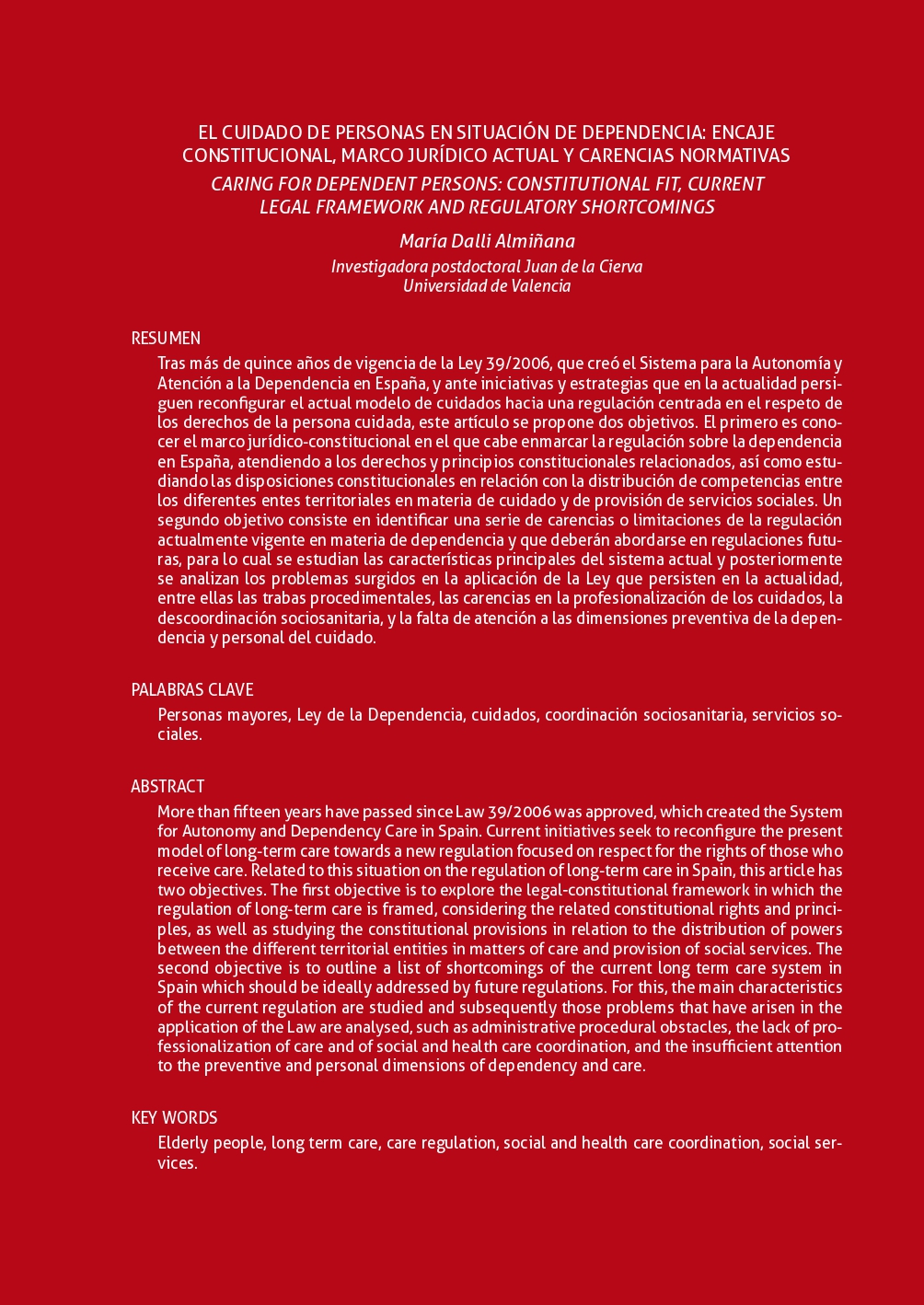EL CUIDADO DE PERSONAS EN SITUACIÓN DE DEPENDENCIA: ENCAJE CONSTITUCIONAL, MARCO JURÍDICO ACTUAL Y CARENCIAS NORMATIVAS
DOI:
https://doi.org/10.36151/td.2022.055Palabras clave:
Personas mayores, Ley de la Dependencia, cuidados, coordinación sociosanitaria, servicios socialesResumen
Tras más de quince años de vigencia de la Ley 39/2006, que creó el Sistema para la Autonomía y Atención a la Dependencia en España, y ante iniciativas y estrategias que en la actualidad persiguen reconfigurar el actual modelo de cuidados hacia una regulación centrada en el respeto de los derechos de la persona cuidada, este artículo se propone dos objetivos. El primero es conocer el marco jurídico-constitucional en el que cabe enmarcar la regulación sobre la dependencia en España, atendiendo a los derechos y principios constitucionales relacionados, así como estudiando las disposiciones constitucionales en relación con la distribución de competencias entre los diferentes entes territoriales en materia de cuidado y de provisión de servicios sociales. Un segundo objetivo consiste en identificar una serie de carencias o limitaciones de la regulación actualmente vigente en materia de dependencia y que deberán abordarse en regulaciones futuras, para lo cual se estudian las características principales del sistema actual y posteriormente se analizan los problemas surgidos en la aplicación de la Ley que persisten en la actualidad, entre ellas las trabas procedimentales, las carencias en la profesionalización de los cuidados, la descoordinación sociosanitaria, y la falta de atención a las dimensiones preventiva de la dependencia y personal del cuidado.
Descargas

Publicado
Número
Sección
Licencia
Derechos de autor 2022 Teoría & Derecho. Revista de pensamiento jurídico

Esta obra está bajo una licencia internacional Creative Commons Atribución-NoComercial-SinDerivadas 4.0.



















